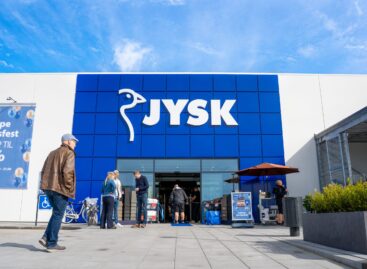Hungarian SMEs must become sustainable in a precarious situation
It is crucial for small and medium-sized enterprises (SMEs) to start preparing now to meet the requirements of the ESG Act (E, environmental, S, social, G, governance). The regulation not only brings new obligations, but also offers significant opportunities to increase sustainability and competitiveness. Erste will help its SME clients with an ESG index and advice so that they can more easily comply with legal requirements.

Waiting, stagnation, in a sense a decrease – the SME sector is looking for opportunities to survive and adapt this year, while constantly facing new challenges. The output of the industry and the construction industry is decreasing: partly due to the declining order stock in our traditional export markets, partly as a result of the decline in domestic housing investments, the lack of EU and state-funded projects and the general decrease in investments. The service sector is struggling with declining demand. In agriculture, after the drought, the aftereffects of the war years, the high prices of raw materials and the falling purchase prices worsen the profitability.
Although the companies currently have a sufficient amount of liquidity – mainly thanks to the subsidized loan schemes used earlier – this liquidity is slowly but surely dwindling in the uncertain economic environment. The development of interest rates, the current market situation and the available refinancing schemes can have a significant impact on how businesses can replace their expiring loans. It is a risk that some subsidized projects do not have a “continuation”, while the companies have incorporated them into their financing structure, pointed out Róbert Szerdahelyi, head of Erste’s SME business.
Related news
ESG: the majority don’t ask for postponement, preparedness level is increasing
🎧 Hallgasd a cikket: Lejátszás Szünet Folytatás Leállítás Nyelv: Auto…
Read more >ESG in Hungary: measuring is the weakest link
🎧 Hallgasd a cikket: Lejátszás Szünet Folytatás Leállítás Nyelv: Auto…
Read more >Related news
Year-round consumer protection inspections – focus on examining discount prices and detecting customer deception
🎧 Hallgasd a cikket: Lejátszás Szünet Folytatás Leállítás Nyelv: Auto…
Read more >Hungarians don’t replace their furniture – JYSK research reveals a conscious, long-term planning market
🎧 Hallgasd a cikket: Lejátszás Szünet Folytatás Leállítás Nyelv: Auto…
Read more >KOMETA campaign: Put down your phone and experience Buona vita!
🎧 Hallgasd a cikket: Lejátszás Szünet Folytatás Leállítás Nyelv: Auto…
Read more >








